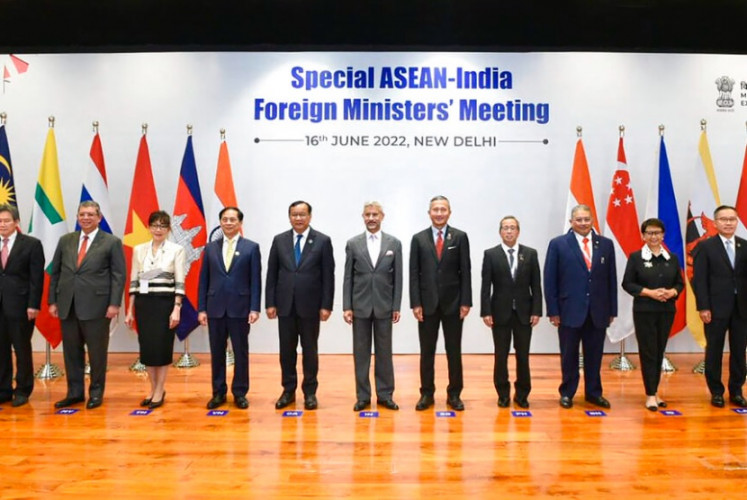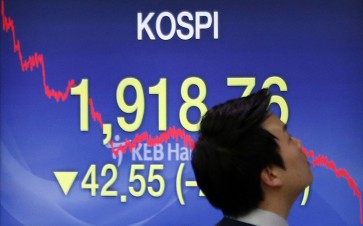Economy: Learning from South Korea's experience
South Korea has also successfully avoided the middle-income trap, which is an issue that should be addressed in the near future to bring the Indonesian economy to the next level.
Change Size
 A currency trader walks by the screens showing the foreign exchange rates between the U.S. dollar and South Korean Won at the foreign exchange dealing room in Seoul, South Korea, Monday, Jan. 4, 2016. (AP Photo/Lee Jin-man)
A currency trader walks by the screens showing the foreign exchange rates between the U.S. dollar and South Korean Won at the foreign exchange dealing room in Seoul, South Korea, Monday, Jan. 4, 2016. (AP Photo/Lee Jin-man)
T
he Indonesia-Korea Business Summit 2017 held in Jakarta recently should not only have provided Indonesia with a good opportunity to attract investments but also to learn about economic modernization from South Korea.
South Korea is regarded as a good model for economic modernization, which has enabled it to catch up with developed countries.
On top of that, it has also successfully avoided the middle-income trap, which is an issue that should be addressed in the near future to bring the Indonesian economy to the next level.
In the 1980s, the IMF’s World Economic Outlook showed that South Korea’s GDP per capita based on purchasing power parity (PPP) was about US$2,184, similar to Bolivia ($2,158). While Indonesia’s GDP per capita was $1,394 at that time. After 35 years, South Korea evolved to be a more advanced and industrialized economy with GDP per capita of around $36,612, which surpasses New Zealand ($36,136) and gets closer to Japan ($38,142). Whereas Indonesia and Bolivia are left behind with GDPs per capita of $11,149 and $6,954, respectively.
What is “the secret recipe” by which South Korea created its magnificent economic transformation? Two main ingredients are innovation and technology advancement, combined with supportive “seasoning ” such as a huge labor force with high productivity, a low dependency ratio and investment-friendly institutions.
The 2016 Bloomberg Innovation Index enthroned South Korea as the world’s most innovative economy, surpassing Germany (second) and Sweden (third). This index measured innovation by scoring the countries in terms of, but not limited to, research and development (R&D) spending and concentration of hightech public companies.
In five of seven factors that are scored by the index South Korea was in the top ranks, including R&D intensity (second), manufacturing value-added (first), high-tech density (second), tertiary efficiency (first), as well as patent activity (second).
















